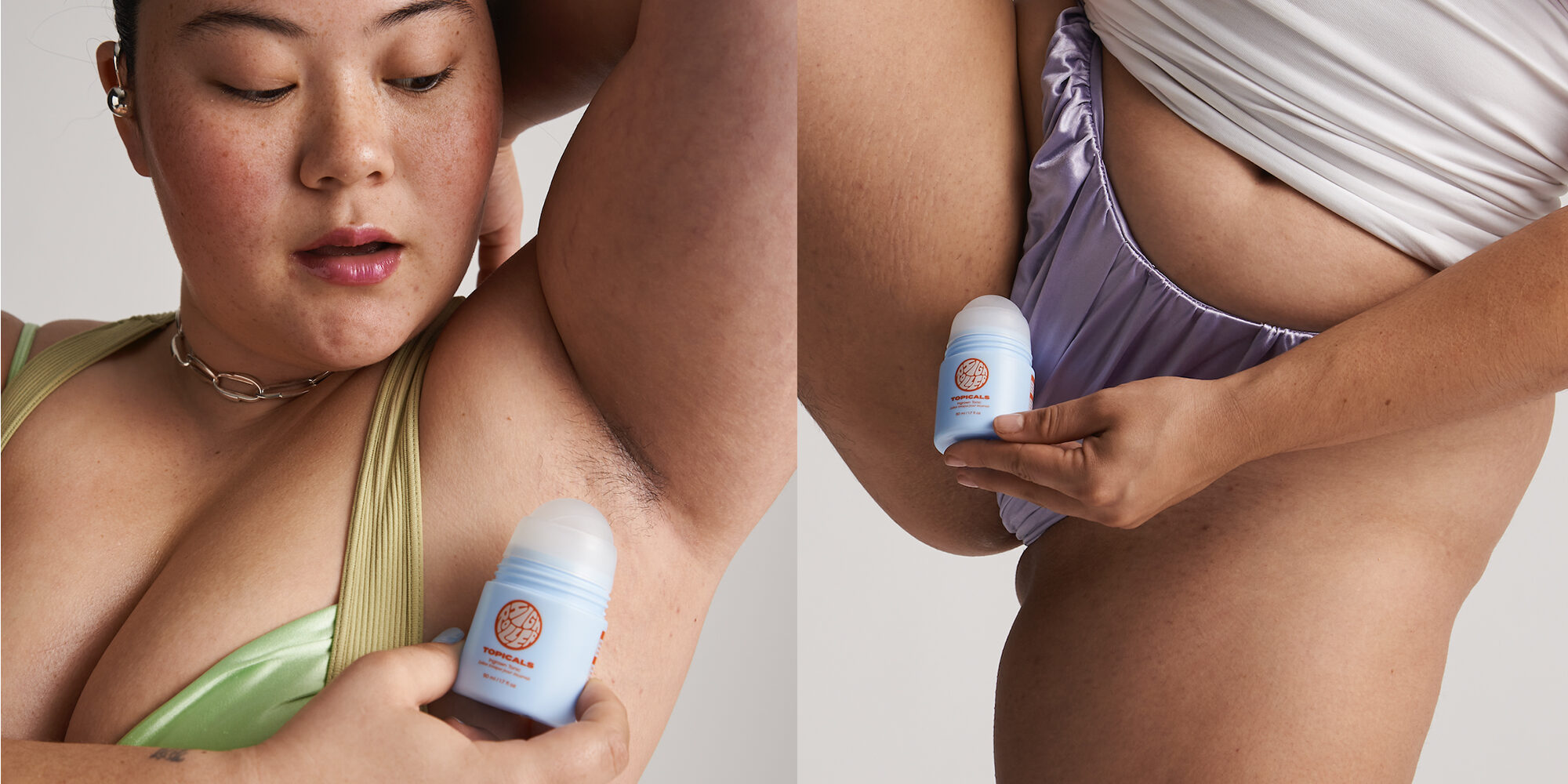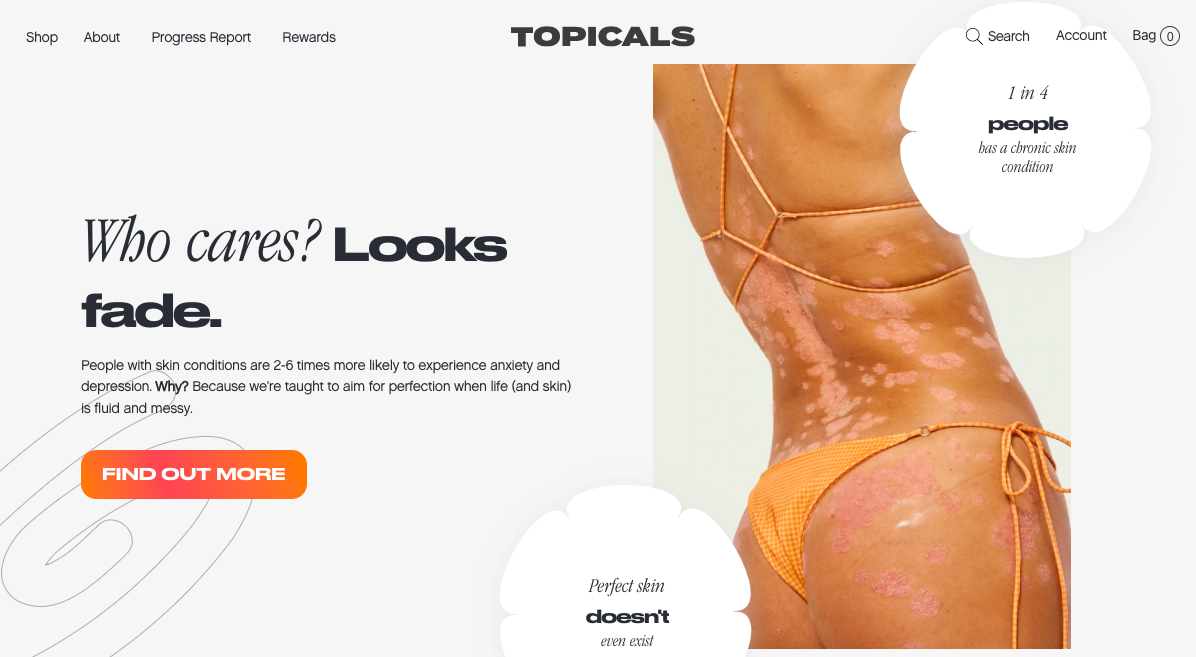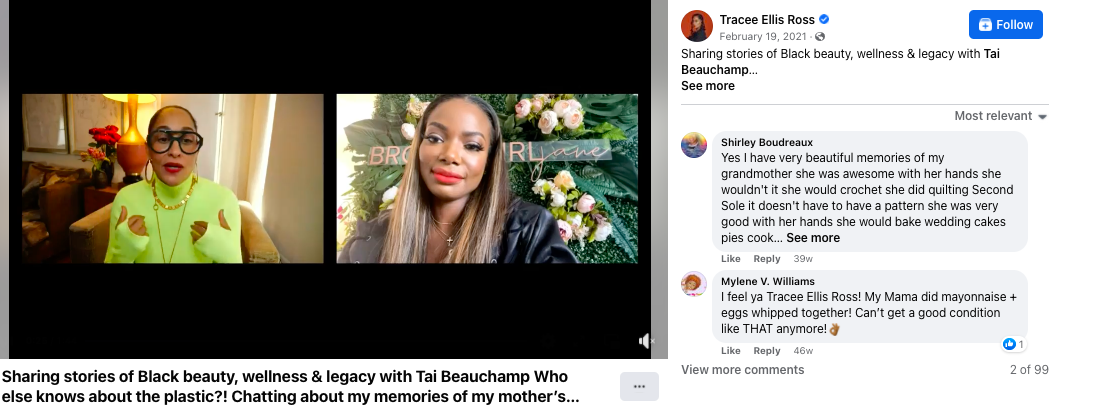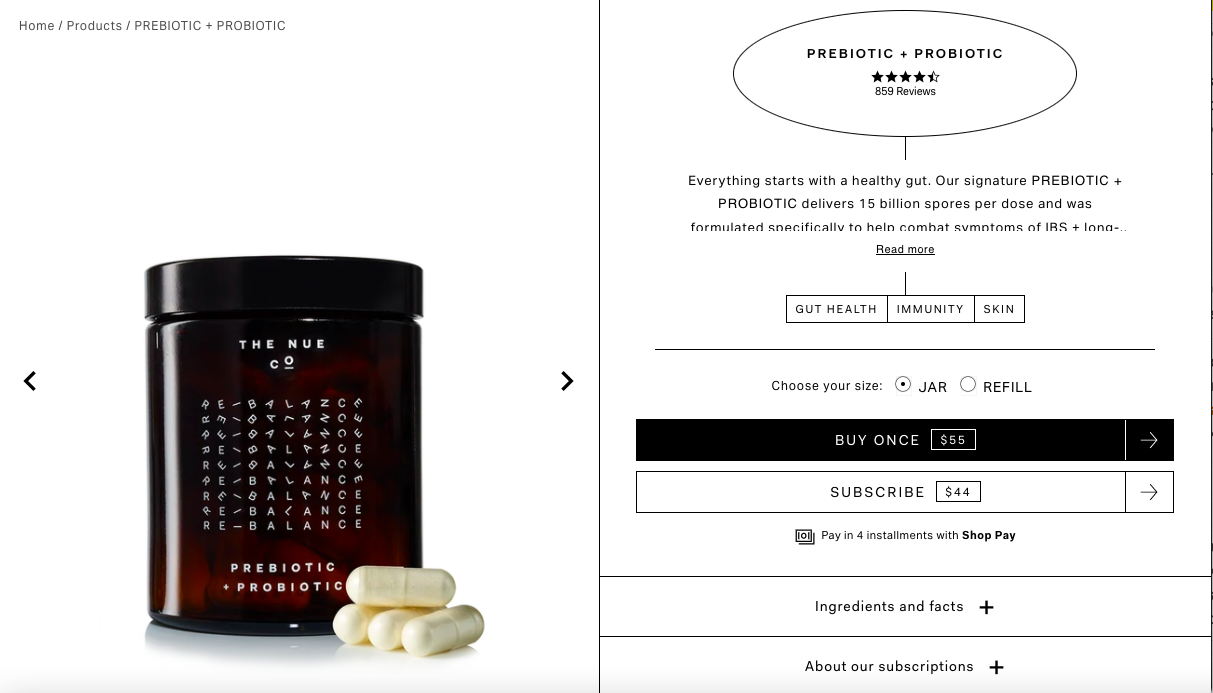
What Actually Is A Lifestyle Brand?
Olamide Olowe, founder of skincare brand Topicals, believes every brand has a chance to become a lifestyle brand.
Joining Jules Miller, founder of The Nue Co., and Malaika Jones, co-founder of Brown Girl Jane, for a Beauty Independent In Conversation webinar last Wednesday on lifestyle brands, she explained the push in the lifestyle direction is about executing great storytelling that’s relevant to a strong community, then leveraging the loyalty of that strong community to break into additional categories, including categories outside of beauty. Olowe suggested brands looking to expand shouldn’t go “wide” by trying to appeal to several types of people, but go in deep with their specific customer segment.

Topicals has struck a chord by presenting skin irregularities and conditions rather than depicting perfect skin on its website, billboards and social media feeds. Many investors and retailers advised Olowe to pursue a different visual strategy. They were concerned spotlighting skin conditions would undermine confidence in the efficacy of Topicals products. However, Olowe, who’s dealt with ingrown hairs and has a sister with eczema, hadn’t previously seen people with skin conditions in advertising—and was convinced showing them would help foster Topicals’ community.
She said traditional beauty product ads made her “feel like I’m aspiring to look like that person versus like me seeing myself represented in something. I think so many people with these skin conditions are looking for that point of connection.”
On top of Topicals skincare products, customers can buy merch from the brand like its Bling velour zip-up reminiscent of Juicy Couture tracksuits. “By creating experiences for them to see themselves in that way, we ultimately change what they think about themselves,” said Olowe. “We’ll do that through products, through experiences, through community.”
Olowe is a member of gen Z, but Topicals has been resonating most with millennial consumers, particularly those with skin conditions open to experimenting with new products. About 40% of the brand’s consumers are Black women, and the rest are from a range of racial and ethnic backgrounds. Direct-to-consumer distribution accounts for 60% of Topicals’ sales. The brand is available across Sephora’s retail network in the United States and via e-commerce at the beauty specialty retailer’s site.

Jones, a former bond trader, was struggling with burnout from her stressful job and raising three children. She was interested in solutions from the wellness industry, but was frustrated it wasn’t inclusive of women of color as it should be. In 2020, she turned her frustration into action by founding wellness brand Brown Girl Jane with her sister Nia Jones and media personality Tai Beauchamp.
Community is integral to everything the brand does, emphasized Jones. It hosts a weekly Instagram Live series called “You Good, Sis?” featuring women like Kelly Rowland and Tracy Ellis Ross discussing stress management, sleep and other life challenges. “What we’ve been able to unlock with storytelling is you see that we’re all sort of going through the same thing, we all want the same sort of discussions and solutions,” said Jones.
She shared 50% of Brown Girl Jane’s customers are Black, and the remainder are from a mix of races and ethnicities. While the brand is sold at large retailers like Nordstrom and Bloomingdale’s, its DTC business is responsible for 70% of sales and remains a priority for it. The year Brown Girl Jane started, it launched Brown Girl Swap, an initiative encouraging consumers to swap five of their everyday mass products for products made by brands established by Black women founders. Brown Girl Jane has since partnered with Unilever to grant $400,000 to Black- and women-led businesses.
Jones asserted that wellness and beauty can’t be boiled down to a single product. As a lifestyle brand, Brown Girl Jane offers a toolkit of solutions to its customers. The toolkit contains CBD-infused gummies, tinctures, serums and body butter as well as candles and mood-boosting fragrances. The products are designed to be used in tandem or individually depending on customers’ wellness needs. “You may need the ingestible to reduce the stress, but a candle also can do the trick in certain situations as well,” said Jones. “So, we wanted to really reflect that it wasn’t a one-size-fits-all approach.”
The Nue Co. has supplements, sprays, scents, moisturizers and more across 10 product categories such as stress management, sleep, immunity, skincare and hair growth. Miller said the term “lifestyle brand” gets a bad rap, conjuring up a brand that might not be dedicated to effective products. She is persuaded that reputation is changing now in part due to lifestyle brands investing in clinical trials and innovative ingredients.
Prior to The Nue Co., Miller was head of business development for food delivery service The Detox Kitchen. A bout with IBS demonstrated to her that even someone well-informed about food and nutrition had difficulty understanding supplements. Miller never set out to create just a gut health brand. She recognized the potential for her brand was greater than that. Instead, she’s considered mental health, skin and beauty from within as The Nue Co. has fashioned products.
“The opportunity for us was all around retention and repeat purchase rate,” said Miller. “If you take a supplement and it works, you connect with the values, you should stay loyal, but the product really needed to work.”

It was vital for the brand’s identity to balance its scientific positioning with stunning aesthetics. Miller took cues from longstanding beauty brands to shape its alluring packaging and photography. “A consumer wakes up in the morning and doesn’t go, ‘Oh no, I have to put my skincare on,'” she said. “It’s something that they really look forward to doing.”
Miller is interested in fostering an empathetic community rather than a didactic one issuing wellness edicts. The Nue Co.’s popular Instagram series, “How Are You, Really?” is intended to urge people to think about how they’re feeling and connect with themselves. Women make up about 70% of The Nue Co.’s customer base. Word of mouth is a powerful tool for the brand. Customers regularly divulge they’ve recommended The Nue Co.’s products to their parents, grandparents and friends.
“One of the things that we felt like wellness did was always tell people who to be. It had an image, and it was all about a set of rules,” said Miller. “But what we really wanted to do was to build a community all around compassion, compassion with yourself. It really is about you connecting with who you really are.”
To watch the full discussion on lifestyle brands or to replay other In Conversation webinars, click here.





Leave a Reply
You must be logged in to post a comment.